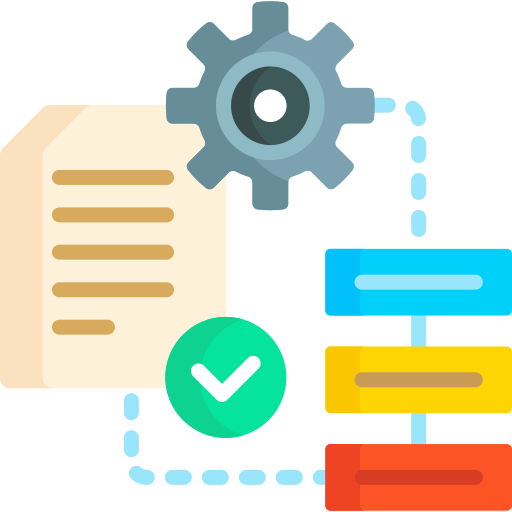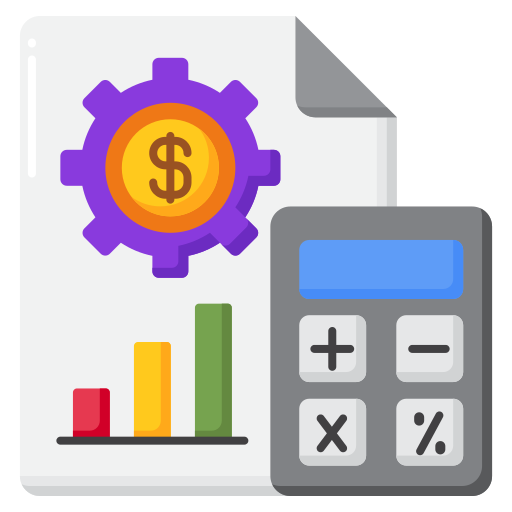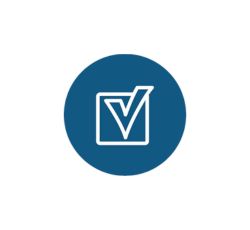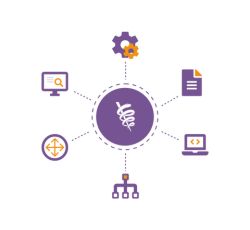Risk Management
Risk management is a crucial process employed by organizations to identify, assess, and prioritize potential risks that could hinder their objectives. It is a detailed discipline that spans across various domains within an organization. It begins with the identification of risks, which involves recognizing potential events or situations that could adversely affect the achievement of objectives. These risks can arise from internal factors such as operational processes, human resources, or technology, as well as external factors like regulatory changes, economic conditions, or competitive pressures.
By systematically analyzing these risks, organizations can develop strategies to mitigate or avoid them, thereby enhancing resilience and safeguarding their assets, operations, and reputation. Effective risk management involves understanding both internal and external factors that may impact the organization, evaluating the likelihood and potential impact of various risks, and implementing measures to monitor and control them. At Meru Accounting, we involve a proactive approach to identifying, assessing, and mitigating potential risks that could impact financial performance and operational stability.
Key factors of the Risk Management
- Risk Identification:
- Internal Risks: Assessing operational processes, human resources, technology vulnerabilities, etc.
- External Risks: Evaluating regulatory changes, economic conditions, market dynamics, competitive threats, etc.
- Risk Assessment:
- Impact Assessment: Evaluating the potential consequences of each risk if it materializes.
- Risk Prioritization: Ranking risks based on their likelihood and impact to focus resources effectively.
- Risk Mitigation Strategies:
- Avoidance: Eliminating the risk by discontinuing the activity or changing processes.
- Mitigation: Implementing controls, redundancies, or improvements to reduce the likelihood or impact of the risk.
- Transfer: Shifting the risk to third parties through contracts, insurance, or outsourcing.
- Implementation and Monitoring:
- Developing and executing risk management plans based on chosen strategies.
- Monitoring ongoing risks and assessing the effectiveness of implemented strategies.
- Adjusting strategies as needed in response to changing risk profiles or new developments.
- Continuous Improvement:
- Reviewing and updating risk management processes regularly.
- Learning from past incidents or near-misses to enhance future risk assessments.
- Incorporating feedback and insights from stakeholders to strengthen risk management practices over time.
Effective risk management enables organizations to anticipate, mitigate, and capitalize on risks, fostering resilience and sustainable growth in a dynamic business environment.
Why are Risk Management strategies essential?
In the modern business environment, organizations face multiple risks that can impact their operations and financial stability. Implementing effective risk management strategies is crucial for navigating these uncertainties.
- Protection Against Losses: Effective risk management helps identify potential threats, enabling organizations to implement measures that safeguard against financial losses and operational disruptions.
- Informed Decision-Making: By understanding and assessing risks, organizations can make more informed decisions, balancing potential rewards against possible drawbacks.
- Regulatory Compliance: Adhering to laws and regulations reduces the risk of legal penalties and enhances reputation, ensuring that organizations operate within legal frameworks.
- Operational Resilience: Proactive risk management strategies enhance an organization’s ability to withstand disruptions, ensuring continuity of operations during crises.
- Enhanced Reputation: Companies that effectively manage risks are viewed more favorably by stakeholders, including customers, investors, and partners, fostering trust and credibility.
- Resource Optimization: Identifying risks allows organizations to allocate resources more effectively, ensuring that investments are directed toward mitigating critical vulnerabilities.
- Competitive Advantage: Organizations that manage risks effectively can respond more swiftly to market changes, gaining an edge over competitors who may be less prepared.
- Long-Term Sustainability: Comprehensive risk management contributes to the long-term viability of an organization, supporting strategic growth and stability in an ever-evolving business landscape.
Why choose Meru Accounting?
Partnering with Meru Accounting for implementing risk management strategies is very beneficial:
- Expertise and Experience: Meru Accounting brings extensive industry knowledge and expertise, ensuring that clients receive informed and effective risk management solutions tailored to their specific needs.
- Comprehensive Risk Assessment: Meru Accounting conducts thorough evaluations of financial, operational, and market risks, providing a holistic view of potential vulnerabilities and enabling proactive management.
- Customized Solutions: Understanding that each organization is unique, Meru develops tailored risk management strategies that align with the client's specific business objectives and risk profile.
- Regulatory Compliance Assurance: Meru helps clients navigate complex regulatory environments, ensuring adherence to relevant laws and standards, which minimizes the risk of legal issues.
- Ongoing Support and Monitoring: Beyond initial assessments, Meru provides continuous monitoring and support, helping clients adapt their risk management strategies to evolving challenges and market conditions.
- Enhanced Decision-Making: With detailed risk analysis and insights, Meru empowers clients to make informed decisions that balance potential risks and rewards, fostering strategic growth.
- Crisis Preparedness: Meru assists in developing robust crisis management plans, ensuring organizations are well-prepared to respond effectively to unforeseen events, thus minimizing disruptions.
- Improved Operational Efficiency: By identifying and addressing risks, Meru helps clients simplify processes and enhance operational efficiency, ultimately leading to cost savings and improved performance.
Our Risk Management strategies
Meru Accounting provides a range of strategies designed to identify, assess, and mitigate risks, ensuring that clients are well-prepared to handle challenges. Risk management strategies offered by Meru Accounting:
- Comprehensive Risk Assessment
Meru conducts thorough evaluations of financial, operational, and market risks through detailed due diligence processes. This includes analyzing financial statements, operational workflows, and external market conditions to pinpoint potential vulnerabilities. - Regulatory Compliance Review
Compliance with laws and regulations is critical for avoiding legal issues and financial penalties. Meru ensures that clients adhere to relevant accounting standards and industry regulations, mitigating risks associated with non-compliance. - Scenario Planning
Developing strategies to address various potential future scenarios enables proactive risk mitigation. Meru Accounting assists clients in creating contingency plans that prepare them for different outcomes, enhancing their resilience to change. - Stakeholder Engagement
Engaging with key stakeholders, including management and employees, allows for a comprehensive understanding of risks. Meru fosters open communication to gather insights that enhance risk awareness and promote a culture of accountability. - Ongoing Monitoring
Implementing frameworks for continuous risk monitoring is vital for adapting to changing circumstances. Meru provides clients with tools and methodologies to regularly assess and update risk management strategies as needed.
Conclusion
Partnering with Meru Accounting for risk management strategies provides organizations with a strategic advantage in navigating the complexities of the modern business environment. Our team of experts specializes in identifying, assessing, and mitigating risks effectively, helping businesses safeguard their operations and financial health. By ensuring regulatory compliance, enhancing internal controls, and implementing proactive risk management frameworks, Meru Accounting enables organizations to achieve long-term stability and operational resilience, positioning them for sustainable growth.
Our Bookkeeping And Writeup Process

Your Need
Search the Service You need

Enquiry
For enquiring make a call or mail us

Confirm
Get your Quote and confirm us

Stay Calm
Feel free and Relax Yourself

Effective budgeting and forecasting are crucial elements of strategic financial management, offering a structured pathway to business success.
Read MoreStarting a new business is exciting and it’s full of opportunities and challenges. At Meru Accounting, we understand the complexity involved and we provide comprehensive Business Start-Up ...
Read MoreCost control and reduction strategies are important elements of any organization's financial management structure. In the competitive marketplace, businesses must precisely manage their expe...
Read More
Due diligence services refer to a set of investigative procedures and assessments conducted by professionals, typically in accounting, finance, law, or consulting fields, to evaluate a business,...
Read More
Risk management is a crucial process employed by organizations to identify, assess, and prioritize potential risks that could hinder their objectives.
Read More
Business Process Optimization (BPO) is a strategic approach aimed at enhancing efficiency, reducing costs, and improving overall performance within organizations.
Read More
Financial restructuring is a strategic process that involves reorganizing a company’s financial framework to improve its stability and performance.
Read More
Although launching a business is an exciting endeavour, there are risks and difficulties associated with it. Effective financial management is essential to the success of every start-up, and it ...
Read More
Performance and improvement consulting is pivotal for businesses seeking to optimize operations and achieve sustainable growth.
Read More
Forensic accounting is a specialized area of accounting that involves investigation of financial records to detect fraud, theft, or other financial crimes.
Read More
Software implementation is a vital phase in the lifecycle of any software application. It involves a series of steps designed to ensure that the software is correctly installed and configured to...
Read More
Project accounting is a specialized branch of accounting that focuses on tracking and managing the financial aspects of a specific project throughout its lifecycle.
Read More
In the modern business environment, companies are increasingly recognizing the importance of nurturing not just the professional growth but also the financial well-being of their employees.
Read More
Handling accounts payable is an essential part of managing a business’s finances. It involves tracking and paying invoices, maintaining good vendor relationships, and ensuring cash flow re...
Read More
Medical billing plays a very central role in the healthcare area.
Read More
Patient registration is the first and the most important when a person steps into a hospital, clinic, or any medical facility.
Read More
Insurance verification is among the most integral steps in medical billing. Before providing even a single health service,
Read More
Medical coding refers to the procedure of converting diagnoses, procedures, medical service, and other forms of medical equipment into...
Read More
Claim submission is one of the key processes in health care because this ensures that service providers get remunerated on time.
Read More
Payment posting would be one of the most significant steps in any medical billing cycle so that healthcare providers will get paid for...
Read More
Denial management is one of the important processes in medical billing because it makes sure that the providers of health services...
Read More
Reporting and analytics are crucial parts of medical billing. They will help healthcare providers follow up on the financial performan...
Read More

